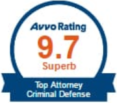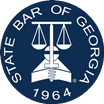Drug Possession Defense Attorney
in Madison, Georgia

Just how serious are drug possession charges in Georgia?
Conviction for possession can bring steep fines and a lengthy prison sentence. Even having less than an ounce of marijuana and some rolling papers or scales can amount to felony drug charges in Georgia. That’s why if you are facing serious drug possession or drug trafficking charges in or around Morgan County, Georgia, you need serious legal advocacy.
Our drug possession lawyers in Georgia can help to guarantee your freedom if you have been arrested for possession of a controlled substance Georgia. Talk to us and we will let you know what your rights are and review and discuss your options. Most importantly, bring us your issue and we will help find the best possible solution.
If you are in trouble for a drug possession charge anywhere in Morgan County, Georgia, contact us online or call Michael Fulcher Law immediately at (706) 438-1555 to make sure your rights are protected.
What is considered drug possession in Georgia?
If you’re accused of drug possession, whether in Georgia or any other state, it’s crucial to seek the guidance of an experienced drug possession lawyer. Possession is the most common drug charge, and even being convicted of having a small amount of a controlled substance can carry severe penalties. The specific penalties vary based on the type and quantity of drugs involved. Furthermore, whether the drugs were for personal use or distribution may also influence the charges and potential consequences. An experienced drug possession lawyer can offer guidance and aid in developing a defense strategy tailored to your case’s specific circumstances.
Drugs are classified by type and potential for abuse called “schedules.” There are five drug schedules that were determined by the federal Drug Enforcement Agency (DEA) through the Controlled Substances Act. Specifically, determination as to “which schedule a drug or other substance should be paced, or whether a substance should be decontrolled or rescheduled” is based on:
- Actual or relative potential for abuse
- Scientific evidence of the drug’s effect, if known
- Current scientific knowledge about the drug
- Its history and pattern of abuse
- The scope, duration, and significance of the abuse
- Whether there is a risk to public health
- It’s psychological or physiological dependence liability
- Whether the substance is an immediate precursor of an already controlled substance; in other words, a chemical that is commonly used in manufacturing another controlled substance
Georgia outlines the regulations and penalties for drug charges through Title 16 and Offenses Chapter 13.
Schedule 1 & 2 drug possession in Georgia
Possessing a Schedule I drugs
Possession of a Schedule I controlled substance is one of the most serious drug possession charges in Georgia. These substances are considered highly addictive, dangerous, and have no accepted medical use under federal law.
Common Schedule I drugs include:
- Heroin
- LSD (acid)
- MDMA (Ecstasy or Molly)
- Psilocybin (magic mushrooms)
- Marijuana (still a Schedule I substance under federal law; illegal for recreational use in Georgia)
Even though marijuana is legal in many states, it remains classified as a Schedule I drug under both Georgia and federal law, with limited medical exceptions for low-THC cannabis oil (no more than 5% THC) for registered patients.
Penalties for possession of a Schedule I drug can include felony charges, jail or prison time, steep fines, and a permanent criminal record. If you are facing charges, speak with a Georgia drug possession lawyer immediately to explore defense options and protect your future.
Possession of schedule II drugs
Schedule II substances are also heavily regulated in Georgia due to their high potential for abuse and dependency, though some have accepted medical uses.
Drugs in this category include:
- Cocaine
- Methamphetamine
- Fentanyl
- Oxycodone (OxyContin)
- Morphine
- Methadone
- Codeine
Possessing a Schedule II drug without a valid prescription is a felony in Georgia. The severity of the charge and penalties depends on:
- The type and quantity of the drug
- Whether there is evidence of personal use or intent to distribute
- Your prior criminal record, if any
Penalties may include mandatory minimum sentences, loss of professional licenses, and disqualification from federal aid or benefits. A defense attorney may be able to challenge the search, question lab results, or negotiate for reduced charges based on first-offender programs or conditional discharge.
Schedule III & IV drug possession in Georgia
Schedule III and Schedule IV substances are controlled drugs that have accepted medical uses but still carry the risk of misuse or dependence. In Georgia, possessing these substances without a valid prescription is a criminal offense.
Common Schedule III Drugs:
- Ketamine
- Anabolic steroids
- Acetaminophen with codeine (less than 90 mg per dose)
These substances have a moderate potential for abuse and dependency. Unlawful possession may result in felony charges, especially if combined with other factors like prior offenses or suspected intent to distribute.
Common Schedule IV Drugs:
- Xanax (Alprazolam)
- Valium (Diazepam)
- Ambien (Zolpidem)
Schedule IV drugs are considered to have a lower risk of abuse than Schedule III drugs, but possession without a prescription can still result in arrest, fines, and a criminal record.
Prescription Misuse and Legal Risks in Georgia
Even though many of these medications are legally prescribed, they are only legal when:
- Dispensed by a licensed provider
- Used by the individual named on the prescription
- Taken exactly as directed
Possessing someone else’s prescription, even with their permission, or misusing your own can lead to criminal charges. Repeat offenses or possession in large quantities can elevate the severity of the charge.
If you’re facing possession charges for Schedule III or IV drugs in Georgia, consult a criminal defense lawyer right away to explore your options and build a defense tailored to your case.
CALL US NOW
FOR A FREE CONSULTATION
Facing legal challenges, whether it’s a DUI, drug charges, a criminal charge, or navigating traffic-related offenses, requires a skilled advocate. Turn to Morgan County’s Michael Fulcher Law for a blend of legal expertise and unwavering client service from a former Georgia prosecutor. Discover the optimal legal solution for your situation by calling our criminal defense law firm at (706) 438-1555 or reaching out online. Schedule your free consultation today and gain a clearer path forward.
Penalties for drug possession in Georgia
Drug possession charges in Georgia are taken seriously. Most offenses are felonies, with sentencing based on the type and amount of the controlled substance involved. Below is a breakdown of penalties under Georgia law:
Schedule I or Schedule II Narcotics
- First offense: 2 to 15 years in prison
- Subsequent offense: 5 to 30 years in prison
Schedule II (Non-Narcotic Substances)
- First offense: 2 to 15 years in prison
- Subsequent offense: 5 to 30 years in prison
Schedule III, IV, or V Substances
- First offense: 1 to 5 years in prison
- Subsequent offense: 1 to 10 years in prison
- Exception: Flunitrazepam (Rohypnol) has enhanced penalties (see below)
Possession of Flunitrazepam (Rohypnol)
- First offense: 2 to 15 years in prison
- Subsequent offense: 5 to 30 years in prison
Possession of Marijuana
- Less than 1 ounce: Misdemeanor; up to 1 year in jail, $1,000 fine, or community service
- 1 ounce or more: Felony; 1 to 10 years in prison
Possession of Drug-Related Objects
- Misdemeanor up to 1 year in jail, $1,000 fine, or both
- Includes items for using, storing, or concealing drugs (e.g., pipes, scales, containers)
Attempt or Conspiracy to Commit a Drug Offense
- Punishable by the same maximum sentence as the intended or completed drug crime
Misdemeanor Sentencing Option for Lesser Felonies
Some felony drug convictions (punishable by 10 years or less) may be reclassified as misdemeanors at the court’s discretion
If you’ve been charged with drug possession in Georgia, penalties can be life-altering. Consulting with a criminal defense lawyer early in your case can significantly improve your outcome.
Best Defense Against a Drug Possession Charge in Georgia
The strongest defense against a drug possession charge in Georgia depends on the specific facts of your case—but in all situations, the guidance of an experienced criminal defense attorney is essential.
Your lawyer may use one or more of the following legal strategies:
- Illegal Search and Seizure: If law enforcement found drugs through an unlawful search, your attorney may file a motion to suppress the evidence.
- Lack of Possession: You cannot be convicted if prosecutors can’t prove the drugs were knowingly in your control or that you even knew they were present.
- Violation of Rights: If police failed to read your Miranda rights, coerced a confession, or mishandled evidence, the case may be weakened or dismissed.
- Testing Errors or Tainted Evidence: Lab mistakes, missing chain-of-custody records, or inconclusive test results can all cast doubt on the prosecution’s case.
A skilled Georgia drug possession lawyer will review every detail—from the traffic stop or arrest to the lab results—to identify weaknesses in the case and fight to protect your record and your future.
Schedule your free consultation today!
The exclusive focus at Michael Fulcher Law is the relentless pursuit of the rights of our clients. As a former prosecutor, Michael Fulcher knows what the stakes are and how important it is to have a passionate advocate on your side. What’s more, we are with you through each step of your case—with the ultimate goal of getting the charges against you reduced or dismissed if possible. Your first step is to schedule a free and confidential consultation to discuss your needs and start building a solid defense. To set up a time to talk, contact us online or give us a call at (706) 438-1555.
While each case is different, these are the concerns that clients often have. These answers can’t replace the all-important consultation you have set up with us, but it should answer some of the questions you may have.
Drug Possession FAQs
While each case is different, these are the concerns that clients often have. These answers can’t replace the all-important consultation you have set up with us, but it should answer some of the questions you may have.
AMAZING WORK
“Mr. Fulcher has been tremendously helpful with my case. Since hiring him he has consistently returned my calls as quickly as he can. We discussed an ideal outcome, and I set about doing exactly as he said. Following his advice we were able to get a very favorable outcome. He is always quick to answer any questions, and has stayed very engaged with me throughout this ordeal. Michael provides excellent counsel, and I would recommend him to anyone!”
— TOM




